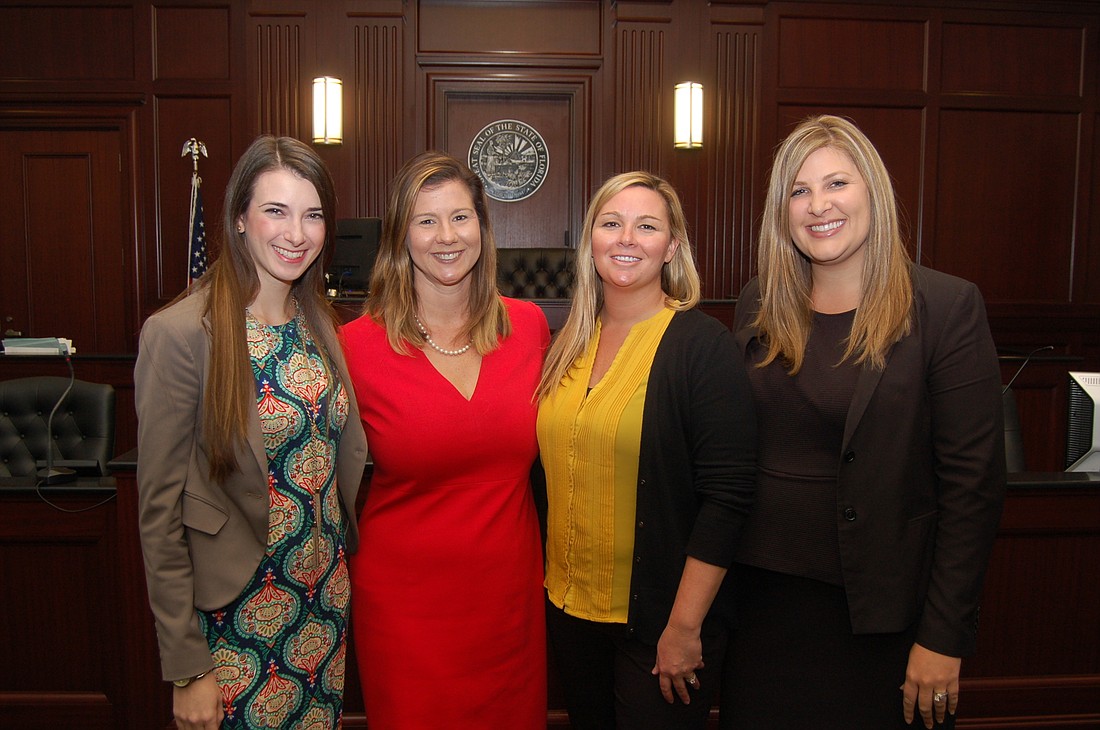
Girls sometimes get in trouble – more trouble than can be handled with a civil citation and a notice to appear in court, or even through one of the 4th Judicial Circuit’s diversion programs for first-time juvenile offenders.
When that happens, the answer may be Girls Court, a 3-year-old program that can help some female juvenile defendants avoid harsh penalties and a criminal history that will follow them the rest of their lives.
“We want to get them on the right track and avoid a permanent record,” said 4th Judicial Circuit General Magistrate Brooke Brady, a former assistant state attorney.
Brady presides over Girls Court and works with the State Attorney’s Office, Public Defender’s Office, the state Department of Juvenile Justice and partners from the private sector to administer the program.
The young women in the program are charged with serious misdemeanor crimes, and in some cases, felonies, she said. Some have children, or are pregnant, which brings up the issue of dependency.
“Some of their parents are ready to give up their children into foster care. Some of the girls risk having their children taken away. We want to keep them out of the dependency system,” said Assistant State Attorney Johnna Lessard, who works with Girls Court.
Some Girls Court participants are under what’s called a “Walker Plan,” an agreement among the state attorney, defense counsel, the court and the defendant that defines specific conditions to which the defendant must adhere. If the conditions are met, the defendant’s case may be dismissed and her record sealed or expunged.
“We agree as a team to reward girls who demonstrate completing the program,” in some cases with lesser charges, said Assistant Public Defender Rachel Cohen.
Each defendant is treated as an individual and their programs are designed to meet their needs and those of the state.
“In Girls Court, there is more individualized care,” Lessard said. “The state’s goal is to get girls out of the criminal justice system.”
The program doesn’t have a dedicated funding source. It’s a partnership that uses resources already in place and in the budget.
“We know it’s a good idea, but good ideas don’t always get funded by the Legislature and the city,” said Public Defender Charlie Cofer.
In addition to appearances in court at least monthly and close supervision by probation officers, Girls Court participants have opportunities for growth outside the courthouse.
“We look for a girl that really wants help and needs support. They need outside activities,” said Rachel Hillegass, probation officer supervisor for the state Department of Juvenile Justice.
For example, several Girls Court participants will be guests of the Jacksonville Women Lawyers Association at the organization’s monthly lunch meeting this week at The River Club. The girls took part in a class conducted by a volunteer etiquette coach and some will wear outfits loaned by court personnel.
“It’s a way to show these young girls that there’s a different world out there,” Cofer said.
Brady said the program needs more women from the private sector who will volunteer to be mentors and more involvement from providers of mental health services.
“We have more demand than we have supply,” she said.